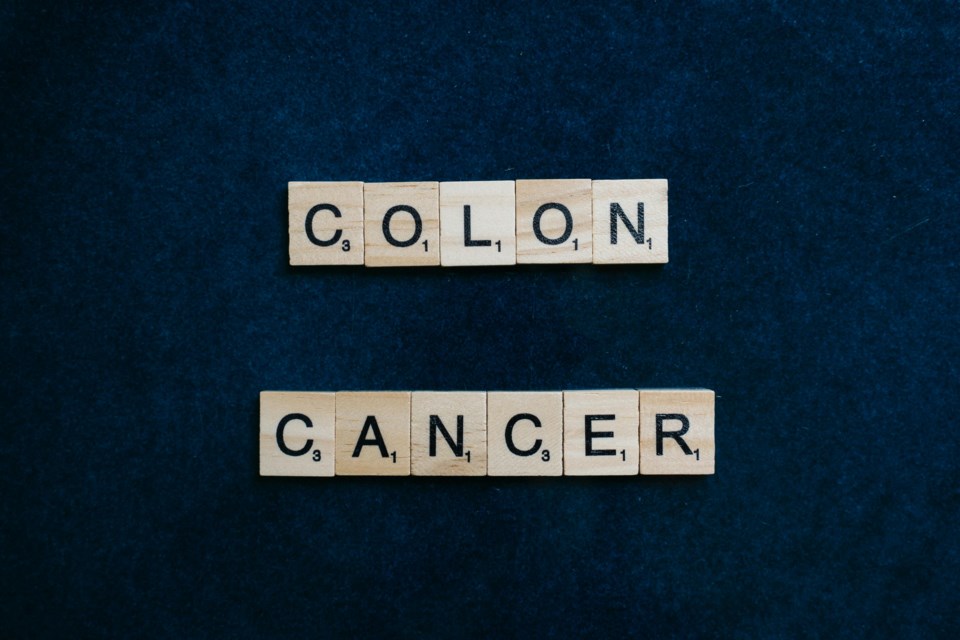Did you know that the most common kind of colon cancer is preventable? All it takes is staying up to date on colon screenings.
March is Colon Cancer Awareness Month and doctors are encouraging people to schedule a colon cancer screening test. Colon cancer is the leading cause of cancer death among those who do not smoke and the second leading cause overall, according to Hans Elzinga, family practice physician and “Butt Savers” organizer at Salud Family Health.
The most common kind of colon cancer comes from polyps. However, not all polyps become cancer, Elzinga said. During a colonoscopy, doctors can remove polyps and prevent most colon cancers.
“When colon cancers are found early, they are easily treatable and can actually be cured by either removing a malignant polyp or by taking out an early-stage colon cancer, “Elzinga said.
Roughly, 15 million people participate in colonoscopies — the gold standard in screening tests — each year. Unfortunately, there are still an estimated 153,000 new colon cancer diagnoses in men and women in 2023. Medical experts expect there to be over 53,000 deaths due to colon cancer in 2024.
According to Elzinga, most colon cancers are discovered in the later stages of the disease. After the cancer spreads beyond the walls of the colon, into lymph nodes or other organs, the disease also becomes more difficult to treat.
There are a few options to begin screening for colon cancer. The first is a stool-based test such as Cologuard At-Home Screening test or the FIT test. The Cologuard test is a non-invasive at-home test that looks for both abnormal DNA and blood in the stool. The FIT test is a multitargeted stool DNA test that looks for certain abnormal sections of DNA from cancer or polyp cells.
“Those tests can lower the risk of dying from colon cancer by about 40%,” Elzinga said.
Virtual colonoscopy is a type of CAT scan that scans the colon and looks for cancers and polyps. Just like a regular colonoscopy, patients must do a bowel prep for this scan.
If any of the other test come out positive, doctors recommend patients get a colonoscopy. Colonoscopies are the leading way to prevent, diagnose or cure colon cancer. If polyps are discovered, they can be removed at the time of the test. The test can lower the likelihood that a person dies from colon cancer by 90%. According to Elzinga, 80% of colon cancer cases could be prevented by a colonoscopy screening.
“We wish we had similar types of tests for other cancers like lung, prostate or breast cancer, but we are very fortunate with the common cancer to not only have a way of lowering the risk of dying from it but also preventing it,” Elzinga said.
Typically doctors recommend beginning screenings as early as 50. However, the United States Preventive Services Task Force changed its recommendation to age 45 in May 2021 for average-risk individuals. Those with genetic conditions or family histories are advised to start screening earlier.
The recent change came about after medical officials noticed increased diagnoses in younger people, Elzinga said.
“The interesting statistic that I use with patients when I’m trying to encourage them to get testing done is that if you were born in 1990, you have four times the risk of developing colorectal cancer than somebody who was born in 1950,” Elzinga said.
The risks increase further for individuals who are low income, of an underserved population, live in a rural area or are uninsured, Elzinga said.
Some signs of colon cancer could be unusual abdominal pain, decrease in stool caliber, rectal bleeding, unexplained weight loss or anemia.
“It is preventable. In the early stages, people are asymptomatic, so we want to do these screening tests before people develop symptoms because symptoms can mean a more advanced cancer which is harder to treat and often time much more likely to be life-threatening,” Elzinga said.



